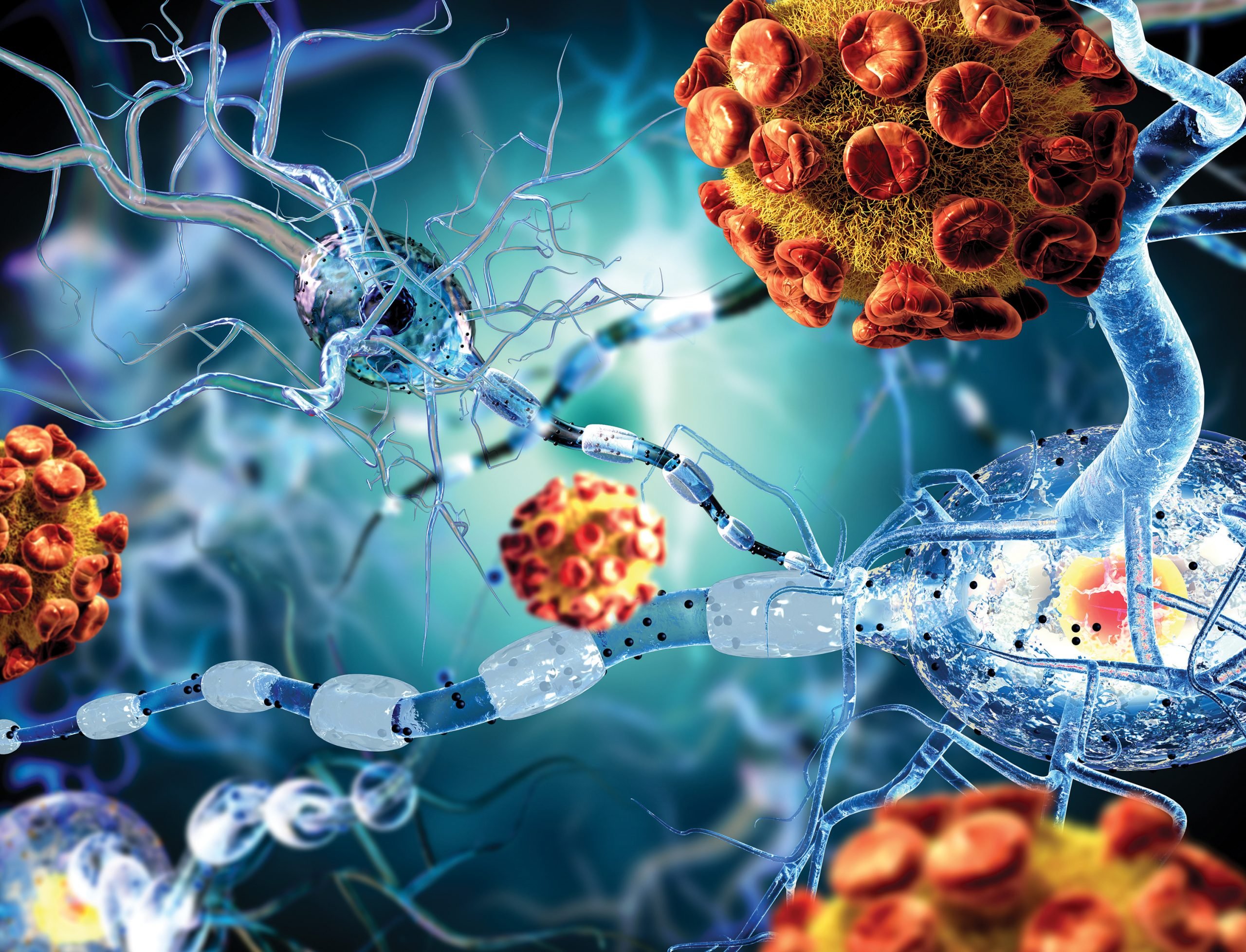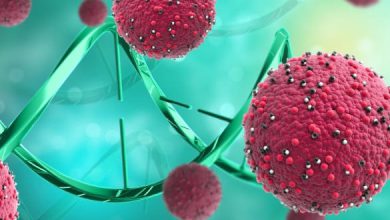disadvantages of donating blood
Every year, thousands of people depend on receiving blood and donated blood products to survive. Specific injuries and diseases can quickly lower blood levels. Without enough blood, they do not get enough oxygen in their body, which leads to death. Many hospitals and medical centers use donated blood to save the lives of their patients.
While donating blood can be vital for some people, what are the effects on those who donate blood? In this article, we take a look at the advantages and disadvantages of blood donation.
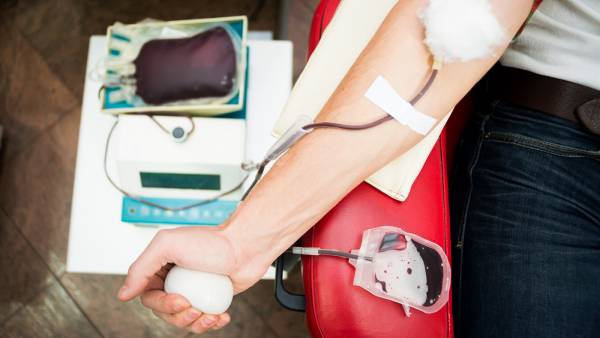
Benefits of blood donation
While donated blood is essential for people in need, some medical experts prove that blood donors also benefit from donating their blood.
Decreased iron levels
Iron is a mineral that the body needs to produce red blood cells. However, too much iron can be harmful to one’s health. It can affect the body’s organs, such as the liver and heart, and affect how those organs work.
Identify health side effects
Each person who donates blood performs a simple physical examination and a short blood test before donating blood. As a result, a person can identify unknown health concerns as part of the blood donation process. These health issues can include high blood pressure or low blood pressure.
A person should never use blood donation to find blood-related diseases such as hepatitis B, hepatitis C or HIV. Instead, they should see a doctor. Although a small amount of blood prevents a person from donating blood, discovering this information can help them learn more about their health.
It helps people feel good about themselves
Blood donation has the power to affect three people who need blood to survive. Knowing that they have made a difference in others’ lives can reduce a person’s stress and make them feel better about themselves.
Reduce the risk of heart attack
Studies have shown that blood donation can reduce the risk of heart attacks by 3.1%, especially in men. Blood, especially red blood cells, contains hemoglobin, which is made up of iron, which binds oxygen.
The amount of iron required depends on gender and age. Adult men need 8.5 mg per day, and older women of gestational age need 18.9 mg daily. Iron is obtained from foods derived from biological sources with a bioavailability of 2-3% and animal sources with a 20-23% bioavailability.
The fact that non-hemoglobin iron is challenging to absorb seems useful because iron can be easily absorbed when consumed in excess, such as hemoglobin iron, which is obtained from meat and accumulates in the body. Increase the risk of cardiovascular disease.
With the accumulation of iron, free radicals in the body increase and oxidize cholesterol. Oxidized cholesterol builds upon the walls of blood vessels. Oxidation of cholesterol in blood vessels causes plaque, which is the prevalence of the cardiovascular disease.
With regular blood donation, blood regeneration is faster; cholesterol oxidation is slower. The blood flows slowly and can prevent the accumulation of fat and cholesterol in the coronary artery wall. Therefore, it reduces the risk of cardiovascular disease.
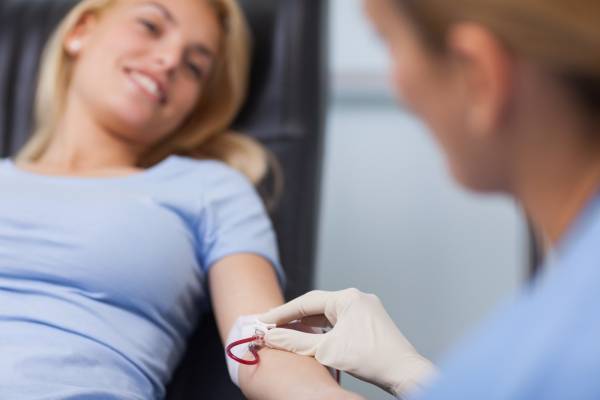
Prevent liver damage
The liver is a vital organ in the body that actively ensures the metabolism of vitamins, minerals, proteins, fats, and carbohydrates. The liver converts glucose to glycogen and helps store glycogen, vitamins, and minerals. This vital organ also plays a vital role in blood purification and detoxification and combines plasma proteins and blood clotting agents.
With regular blood donation, we should prevent liver damage caused by excess iron in the body. Eating foods rich in iron can increase iron levels in the body because iron is used sparingly, excess iron is absorbed and stored in the liver and pancreas. Finally, it can increase the risk of cirrhosis, liver failure, pancreatic damage, and heart disorders.
Stimulation of blood cells
After donating blood, the body tries to replenish lost blood. These people can regularly help stimulate the production of new blood cells. Blood donation contributes to the health of the body and its effective functioning.
Reduce the risk of hemochromatosis
Hemochromatosis is a genetic disorder in which the body absorbs too much iron from food. Excess iron then settles in various organs, especially the liver. Excess iron can also be stored in the pancreas, liver, testicles, ovaries, skin, and joints. To overcome hemochromatosis, you must routinely change your blood to reduce excess iron.
This disease can be inherited, or it can be caused by alcoholism, or …. Regular blood donation can help reduce excess iron.
Reduce the risk of heart disease
In the blood, there is iron, which affects the concentration of blood. High levels of iron cause the blood to thicken. In addition to increasing iron levels, it can also accelerate the process of cholesterol oxidation.
The disease can affect the blood and increase friction, which increases blood flow to the blood vessels and increases the risk of developing resistance in the blood vessels. According to the American Journal of Epidemiology, donating blood can reduce your heart disease risk by 33% and your risk of heart attack by 88%.
Researchers at the American Medical Association say donating blood every six months can reduce heart attack and stroke risk between 43 and 61.
Reduce the risk of cancer
Cancer is a deadly disease. The risk of cancer is often associated with high levels of iron in the blood. The higher the iron, the greater the potential for cancer to grow. The good news for regular blood donors is that with donated blood, the amount of their blood is controlled. This means that the liver’s risk, intestines, lungs, and throat are reduced.
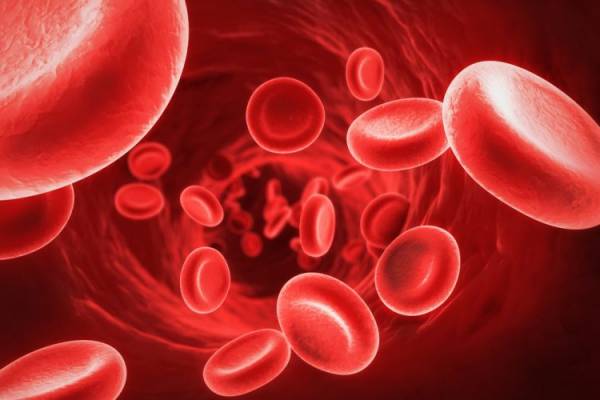
Cholesterol-lowering
By donating blood, we not only help others but also reduce the risk of high cholesterol. High-density HDL lipoprotein can be useful for the body because it can speed up blood flow. But you should be concerned about the low density of LDL lipoprotein, which can block blood flow.
Blood contains iron. If iron is too much in the blood, cholesterol can be oxidized. This means that there will be a blockage in the blood vessels. Therefore, blood donation is necessary to reduce the amount of iron in the blood.
LDL cholesterol is commonly found in animal foods such as meat and other foods such as fast food and milk. If iron is not eliminated through blood donation, it can cause fat to build upon blood vessels’ walls, leading to diseases such as heart disease and stroke.
Accelerate the wound healing process
When you donate blood, the body adapts to the reduction of red blood cells. Body adjustment occurs when the body heals. The effect of these settings will also affect the wound healing process you experience.
Weight control
For overweight people, it is recommended to donate blood regularly. Because each blood donation can burn more than 650 calories of fat, it is not considered a way to lose weight because weight loss is the only way to control weight. There are special conditions for donating blood. Donors who weigh about 49 kg must have certain hemoglobin levels and iron levels to donate blood regularly every two months or three months.
Prevent premature aging
By donating blood regularly, you not only lose weight, but your mind becomes more stable. By doing this, you will be more focused on all the activities you do, and you will make everything run smoothly. So you do not experience stress. Stress is one of the stimuli of premature aging. If you can control your mind and donate blood, you can keep your skin smooth to not wrinkle easily.
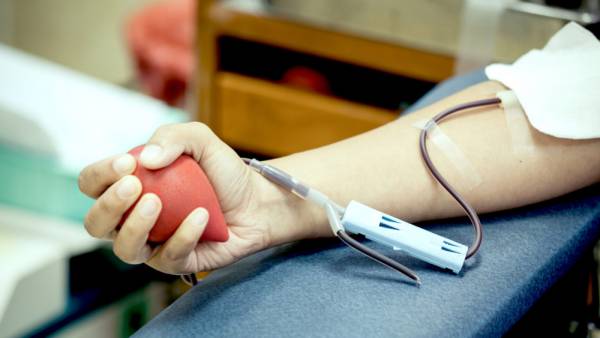
Disadvantages of blood donation
Blood donation is safe when done correctly. If a blood bank uses a syringe to reuse, it can increase a person’s risk of developing a blood infection.
For this reason, it is a routine part of taking blood that new needles must be used for each donor, and everyone must wash their hands. The FDA monitors blood banks to make sure they are collecting blood safely. A person can experience some side effects as a result of blood donation. These include:
Vertigo
Weakness
The lightness of the head
Nausea
These symptoms usually go away within three days of donating blood.
If a person’s iron levels are too low after donating blood, they can increase their iron-rich food intake. High-iron-rich foods include red meat, spinach, and iron-rich fruit juices, and whole grains.
Preparing for a blood donation
Before donating, individuals must register for donation, complete medical history, and undergo a minor physical examination. These steps help ensure that the person is not exposed to diseases, which may be transmitted by donating blood to others. These tests also show that if someone is the right candidate for blood donation, there is no problem. Examples of these problems include low hemoglobin levels or high or low blood pressure.
The doctor cleans the arm with an alcohol pad, and a member of the donation team inserts the syringe needle into the vein.
The needle is attached to a tube and bag, and the blood continues to work until it is full.
The total blood donation time averages 8 to 10 minutes.
If a person donates a blood product such as platelets or plasma, this process can take up to 2 hours.
After blood donation
When the blood donation is complete, the medical staff removes the needle, puts on cotton and presses, and places the bandage on the person’s arm. Donors usually stay 10 to 15 minutes before departure and are encouraged to eat and drink during this time.
After donating blood, medical teams will receive the blood and test it for potential inherited diseases. Examples include HIV, hepatitis B, hepatitis C, and syphilis.
The charity usually performs more than a dozen tests to ensure the safety of the donated blood. Donated blood can only last for a while and must be used before it expires. As a result, blood banks and hospitals have an almost constant need for donated blood.
also read :
Why do I have nightmares, and what can I do to relieve these disturbing dreams?




